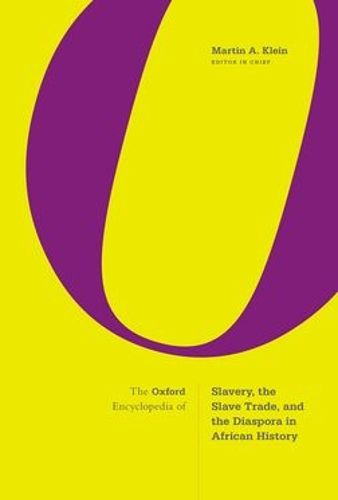Readings Newsletter
Become a Readings Member to make your shopping experience even easier.
Sign in or sign up for free!
You’re not far away from qualifying for FREE standard shipping within Australia
You’ve qualified for FREE standard shipping within Australia
The cart is loading…






Both colonial and early nationalist writers of African history tried to minimize the importance of the slave trade in the study of Africa's past and present. Increasingly, however, scholars have recognized the significance of the institution for properly understanding African history, both within the continent and throughout the Diaspora. Much of Africa entered into relations with the rest of the world as a producer of coerced labor. The Nile Valley and the coast of Northeast Africa were sources of slaves for ancient Egypt, and by the colonial period, dating from the 15th to the 19th centuries, the slave trade had become a major activity, shaping political, economic, and social structures. In the 21st century, Africa is a focal point for international debates regarding modern versions of slavery.
The Oxford Encyclopedia of Slavery, the Slave Trade, and the Diaspora in African History is the first reference work of its kind to explore this history: a comprehensive resource that aims to cover the development, practice, and legacy of the institution of slavery in Africa and the Diaspora, while utilizing the rapidly evolving scholarship in archaeology, ethnography, anthropology, and economics. The contributors utilize the latest research, which has shifted away from the viewpoint of colonizers, traders, and politicians, and has sought to incorporate the voices and experiences of all the people who were involved. Moreover, the writers look beyond the landmark historical and political events to examine the impact on culture and modern global relations, thus pushing the field in new directions, and toward new perspectives and disciplines.
$9.00 standard shipping within Australia
FREE standard shipping within Australia for orders over $100.00
Express & International shipping calculated at checkout
Both colonial and early nationalist writers of African history tried to minimize the importance of the slave trade in the study of Africa's past and present. Increasingly, however, scholars have recognized the significance of the institution for properly understanding African history, both within the continent and throughout the Diaspora. Much of Africa entered into relations with the rest of the world as a producer of coerced labor. The Nile Valley and the coast of Northeast Africa were sources of slaves for ancient Egypt, and by the colonial period, dating from the 15th to the 19th centuries, the slave trade had become a major activity, shaping political, economic, and social structures. In the 21st century, Africa is a focal point for international debates regarding modern versions of slavery.
The Oxford Encyclopedia of Slavery, the Slave Trade, and the Diaspora in African History is the first reference work of its kind to explore this history: a comprehensive resource that aims to cover the development, practice, and legacy of the institution of slavery in Africa and the Diaspora, while utilizing the rapidly evolving scholarship in archaeology, ethnography, anthropology, and economics. The contributors utilize the latest research, which has shifted away from the viewpoint of colonizers, traders, and politicians, and has sought to incorporate the voices and experiences of all the people who were involved. Moreover, the writers look beyond the landmark historical and political events to examine the impact on culture and modern global relations, thus pushing the field in new directions, and toward new perspectives and disciplines.